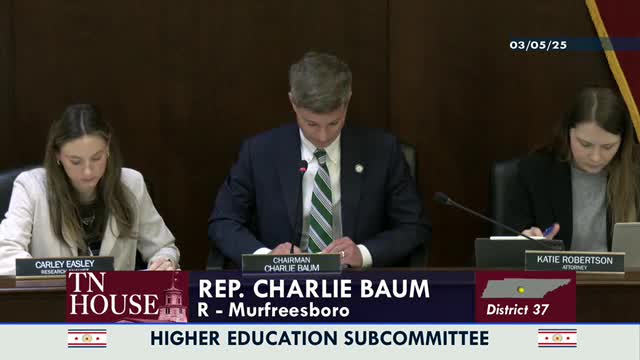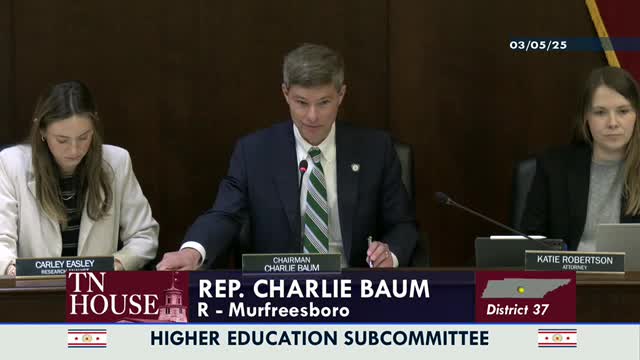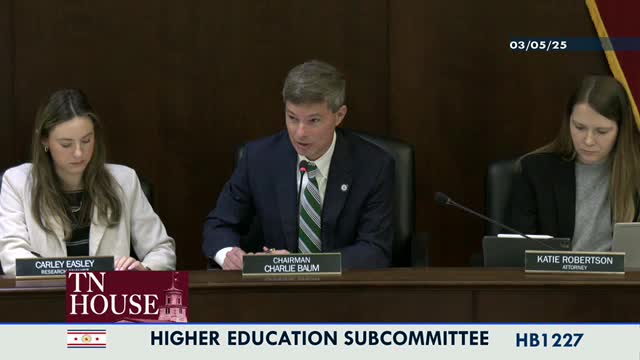Article not found
This article is no longer available. But don't worry—we've gathered other articles that discuss the same topic.

Subcommittee approves bill to modernize THEC authorities and streamline program approvals

Higher Education Subcommittee advances bill to extend Ben Ashley supplemental awards to Western Governors University

